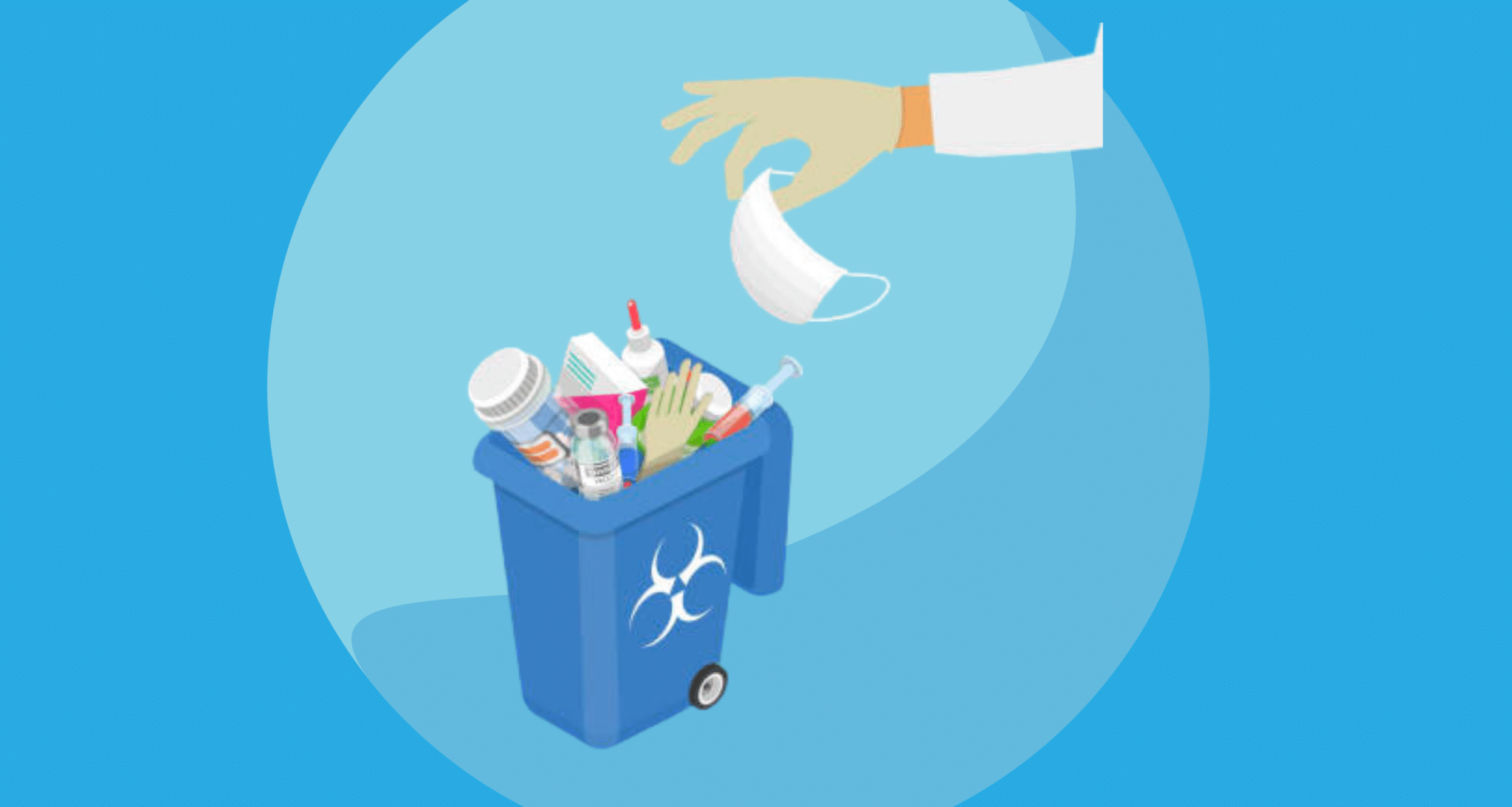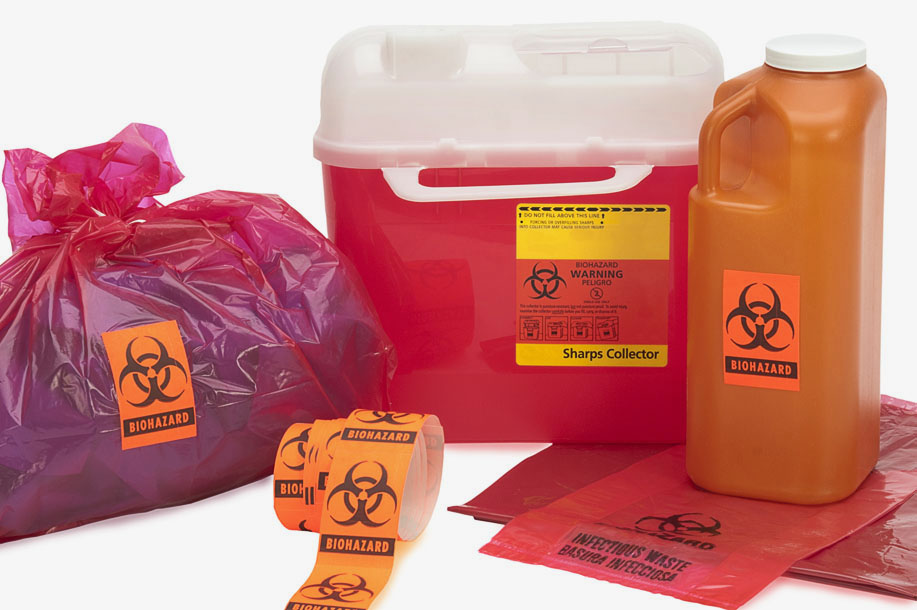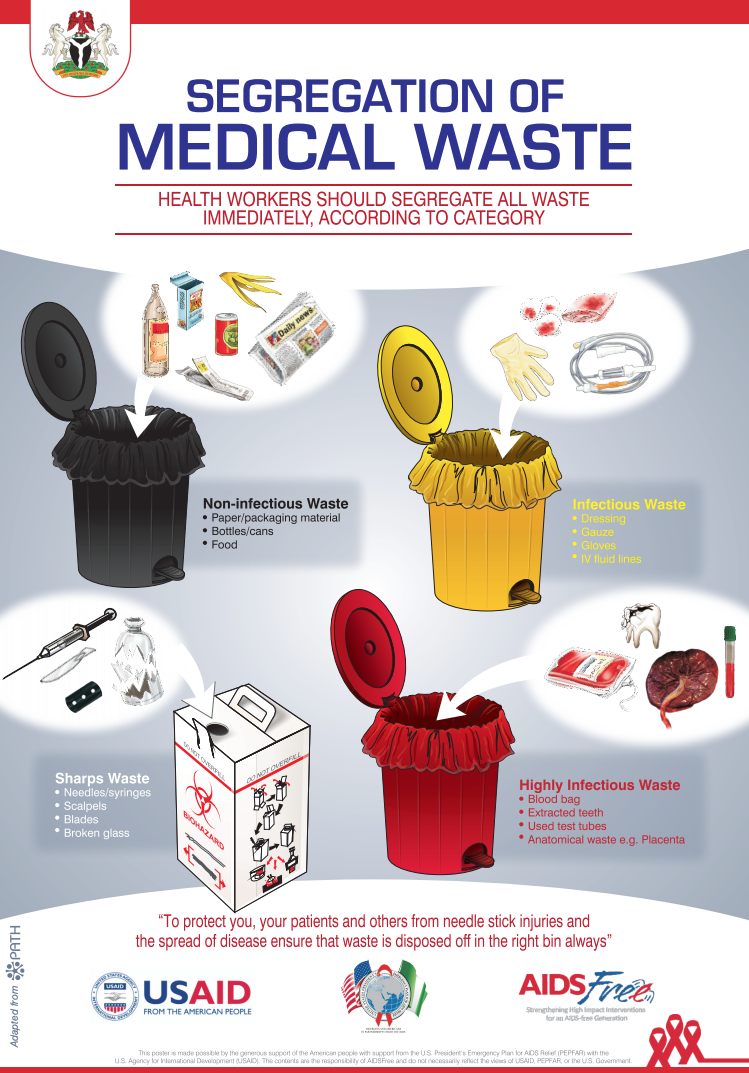Navigating Medical Garbage Disposal: Essential Services for Health Care Facilities
In the detailed landscape of healthcare operations, the monitoring of medical waste is a crucial element that requires precise interest. Medical care centers, whether large healthcare facilities or tiny facilities, are entrusted with the obligation of handling, treating, and taking care of a broad selection of clinical waste streams. The complexities entailed in browsing with the regulative requirements, guaranteeing appropriate waste segregation, and performing risk-free collection and transport procedures are extremely important. Understanding the necessary services that support medical waste disposal is not simply a matter of conformity yet likewise an essential component in guarding public health and wellness and environmental well-being. The ins and outs of this process are essential for health care facilities, and the know-how provided in this world plays an essential role in keeping the stability of healthcare systems.
Regulatory Conformity Support
For medical care facilities, making certain regulative compliance support is essential to keep proper handling and disposal of clinical waste. Sticking to regulations set forth by organizations such as the Epa (EPA) and the Occupational Security and Health And Wellness Management (OSHA) is vital to avoid ecological contamination, secure public wellness, and avoid prospective legal effects. Regulatory compliance assistance provides health care facilities with advice on just how to effectively set apart, store, transport, and throw away various sorts of medical waste in accordance with regional, state, and government regulations. This support consists of aid in producing and implementing thorough waste management plans, carrying out normal staff training sessions, and executing audits to ensure ongoing compliance. By partnering with governing compliance professionals, medical care centers can remain up-to-date on evolving guidelines, reduce threats associated with incorrect garbage disposal, and inevitably add to a safer and extra lasting atmosphere for all.
Waste Segregation Advice

Medical care centers should supply clear standards and training to team on just how to set apart waste properly. This consists of separating general waste from harmful products such as sharps, infectious waste, drugs, and chemical waste.
Collection and Transport Solutions

Appropriate collection and transportation solutions are vital components of the clinical garbage disposal procedure in medical care centers. These solutions ensure that harmful products are managed securely and in compliance with laws to secure both the environment and public wellness. Medical care facilities count on specialized waste administration business to offer effective collection and transportation solutions customized to their needs.
Clinical waste collection entails segregating different types of waste at the factor of generation, using color-coded bins or bags to distinguish in between general, hazardous, pharmaceutical, and various other waste streams. Trained personnel must do this task to avoid contamination and ensure correct disposal. As soon as accumulated, the waste is delivered in specialized automobiles outfitted to handle unsafe materials securely. These automobiles abide by stringent safety and security criteria and comply with designated paths to licensed treatment centers for disposal through techniques such as incineration, landfilling, or sterilization.
Treatment and Disposal Solutions
In the realm of medical waste disposal for health care facilities, after the important phase of collection and transportation solutions, the emphasis shifts towards carrying out effective treatment and disposal remedies. Therapy remedies often include processes such as autoclaving, which utilizes vapor under pressure to sanitize the waste. This approach is generally used for infectious waste that needs to be provided non-hazardous before disposal. One more common therapy technique is incineration, where waste undergoes high temperature levels in controlled settings to lower its volume and remove pathogens. official statement
Disposal options include the final step in the medical waste management procedure. Reusing and resource recovery are likewise getting grip as sustainable disposal options for certain types of clinical waste products.
Effective treatment and disposal remedies are extremely important in ensuring conformity with policies and safeguarding public wellness and the setting. Health care centers should meticulously review and select appropriate techniques that straighten with their waste management goals and sustainability initiatives.
Staff Training and Education

To properly take care of medical waste disposal in healthcare centers, comprehensive team training and education play an important role in guaranteeing adherence to governing demands and preserving a safe setting. Correct training gears up team with the understanding and abilities required to manage various sorts of medical waste, segregate them correctly, and package them safely for disposal. By informing staff members on the threats related to inappropriate handling of medical waste, facilities can lower the possibility of crashes, contamination, and regulatory offenses.

Verdict
Finally, health care facilities rely upon vital clinical garbage disposal solutions to ensure regulative conformity, correct waste partition, safe collection and transportation, reliable therapy and disposal, in addition to staff training and education and learning. These services play a vital function in preserving the health and wellness and security of both medical care employees and the basic public, highlighting the importance of proper administration of clinical waste in medical care setups.
For health care facilities, guaranteeing regulative conformity assistance is necessary to preserve proper handling and disposal of clinical waste. Waste partition includes classifying various kinds of medical waste to guarantee proper handling, treatment, and disposal. This includes separating basic waste from dangerous products such as sharps, infectious waste, pharmaceuticals, and chemical waste.Clinical waste collection includes segregating various types of waste at the factor of generation, making use of color-coded bags or bins to distinguish between general, harmful, pharmaceutical, and other waste streams.In the browse around here world of medical waste disposal for medical care facilities, after the important stage of collection and transport services, the emphasis moves in the direction of carrying out efficient therapy and disposal remedies.